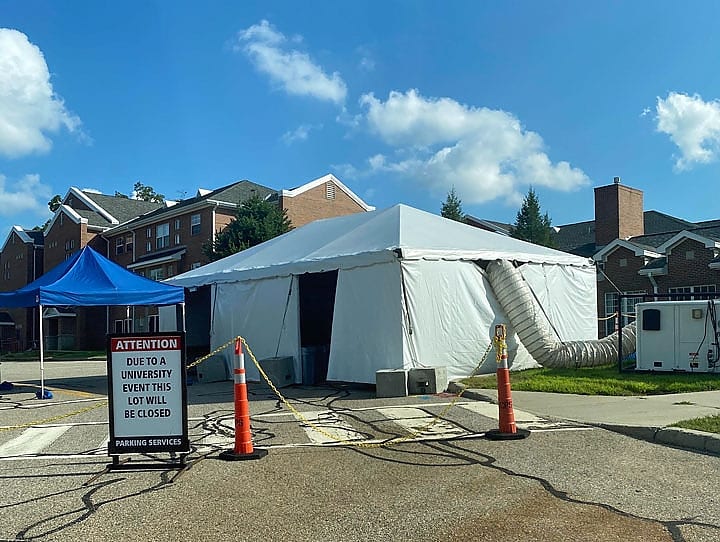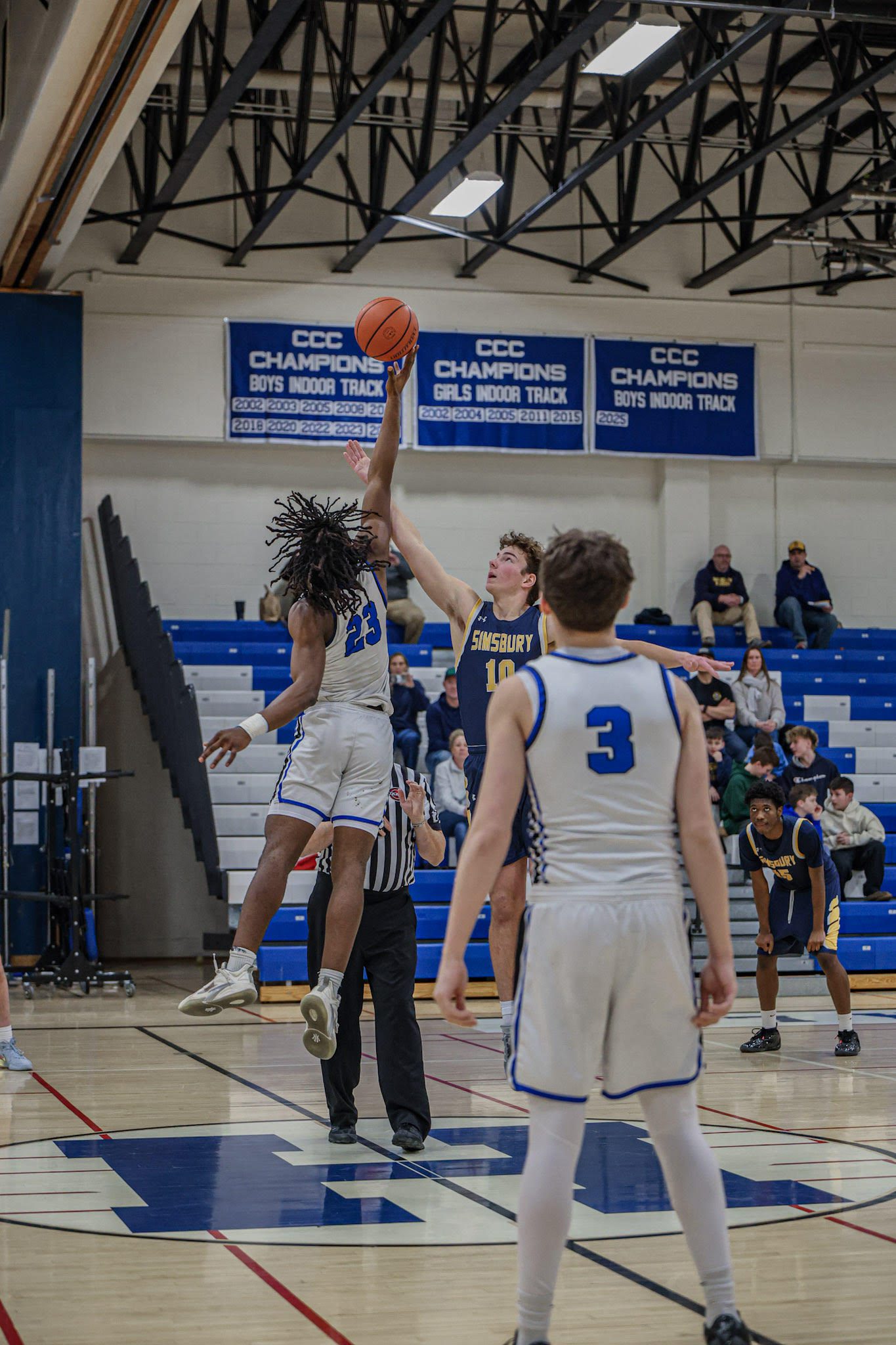COVID-19 Cases Increase on College Campuses as Classes Start

Audio By Carbonatix

COVID testing site at the University of Connecticut. Erica Franklin photo, courtesy of CTNewsJunkie.com
The University of Saint Joseph in West Hartford has had one case of COVID-19, while the University of Hartford has reported seven, according to the schools’ online dashboards.
By Kristina Vakhman, CTNewsJunkie.com
Ronni Newton, We-Ha.com, contributed updated data to the original story
The number of COVID-19 cases across college campuses has increased since the start of classes last week.
The University of Connecticut has seen cases jump since students returned, and has been updating its dashboard with reported cases among residential and commuter students as well as faculty at the various campuses.
The largest cluster is at the university’s main Storrs campus, but by Tuesday the number of students in isolation dropped by 10, from 50 on Sunday to 40, with a total of 205 beds available. The school’s dashboard indicates that 86 students have recovered from COVID-19.
UConn also asked the 300 students living in the Garrigus Suites residence hall to quarantine after an outbreak in the dorm in August, and that quarantine remains in effect.
Since move-in day, UConn Storrs has reported more than 100 positive cases in total, among both students and faculty, according to its latest data. The university has moved programs for all student organizations online until Sept. 20, but has no plans to shift to online-only classes.
There is just one positive case reported at UConn Hartford’s campus, where there are no residential facilities.
Central Connecticut State University President Dr. Zulma Toro said CCSU confirmed many of its positive cases on that campus were directly linked to two off-campus parties and told students that the school would be cracking down on these gatherings with an iron fist.
“Though this is not unexpected during the first week of testing, it is extremely disappointing how some of these students became infected,” Toro wrote in an Aug. 31 statement to the CCSU community. “Failure to … limit indoor gatherings to 25 people (50 outdoors), may result in suspension or expulsion from the University – whether you are the host of a gathering or are attending one.”
As of Tuesday, CCSU had 14 residential individuals in quarantine and five in isolation. The university has also reported 10 commuter student cases since Sept. 1.
At the University of Hartford, where some students previously expressed concerns about spikes because of parties, there have been seven student and no employee cases reported since Aug. 21.
According to UHart’s Student Conduct Guidelines, the college promises to squash parties and to enforce COVID-19 safety measures by reminding students that their housing and enrollment status is at risk if they break the rules.
Trinity College in Hartford, where classes began this week, has three active cases as of Sept. 7.
West Hartford’s University of Saint Joseph has one positive case as of Sept. 4. USJ will still permit residential students to leave campus without restriction and to return home for the weekend as long as they stay within Connecticut, but students who travel to a location on the Connecticut Travel Advisory List will have to complete a state travel form and quarantine upon their arrival back.
During an interview with NBC’s “Today” Show last Thursday, infectious disease expert Dr. Anthony Fauci said the “worst thing” colleges with positive cases can do is send students home.
“When you send them home, particularly when you’re dealing with a university where people come from multiple different locations, you could be seeding the different places with infection,” Fauci told NBC.
The White House coronavirus task force also warned governors on a call last week that campuses could become hotspots and sources of outbreaks if infected students are not properly quarantined.
In a new emergency declaration signed last week that extends his emergency powers to Feb. 9, Gov. Ned Lamont said that he would now have more oversight when it came to the safe functioning of higher education.
“Among many other things, I will be required to manage the reopening and continued operation of schools, colleges and universities as well as the potential health and other risks that may arise out of the coming general election in November,” Lamont wrote.
Additionally, during a press conference during the first day of classes, Lamont and other officials implored college students to follow the rules to keep themselves and the community outside their campuses safe.
Republished with permission from CTNewsJunkie.com, all rights reserved.
Like what you see here? Click here to subscribe to We-Ha’s newsletter so you’ll always be in the know about what’s happening in West Hartford! Click the blue button below to become a supporter of We-Ha.com and our efforts to continue producing quality journalism.



